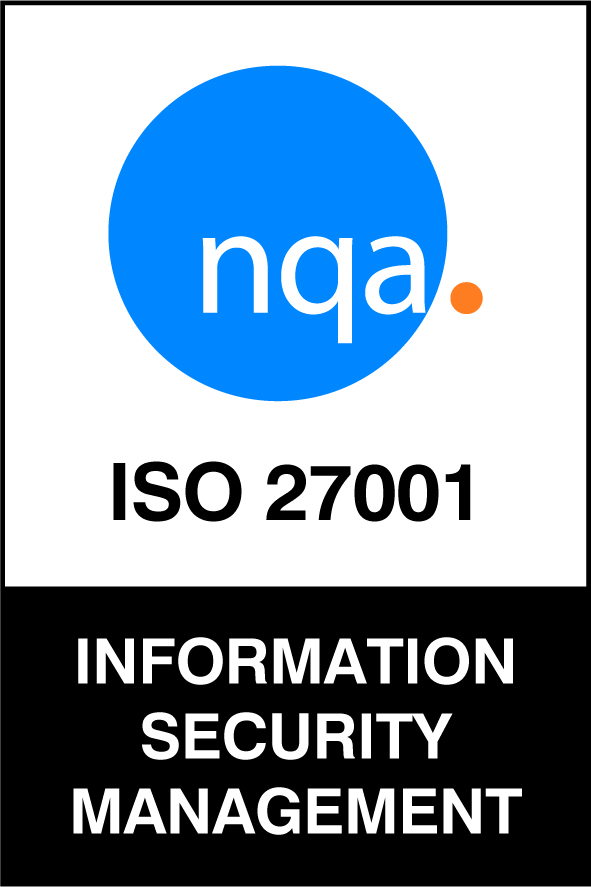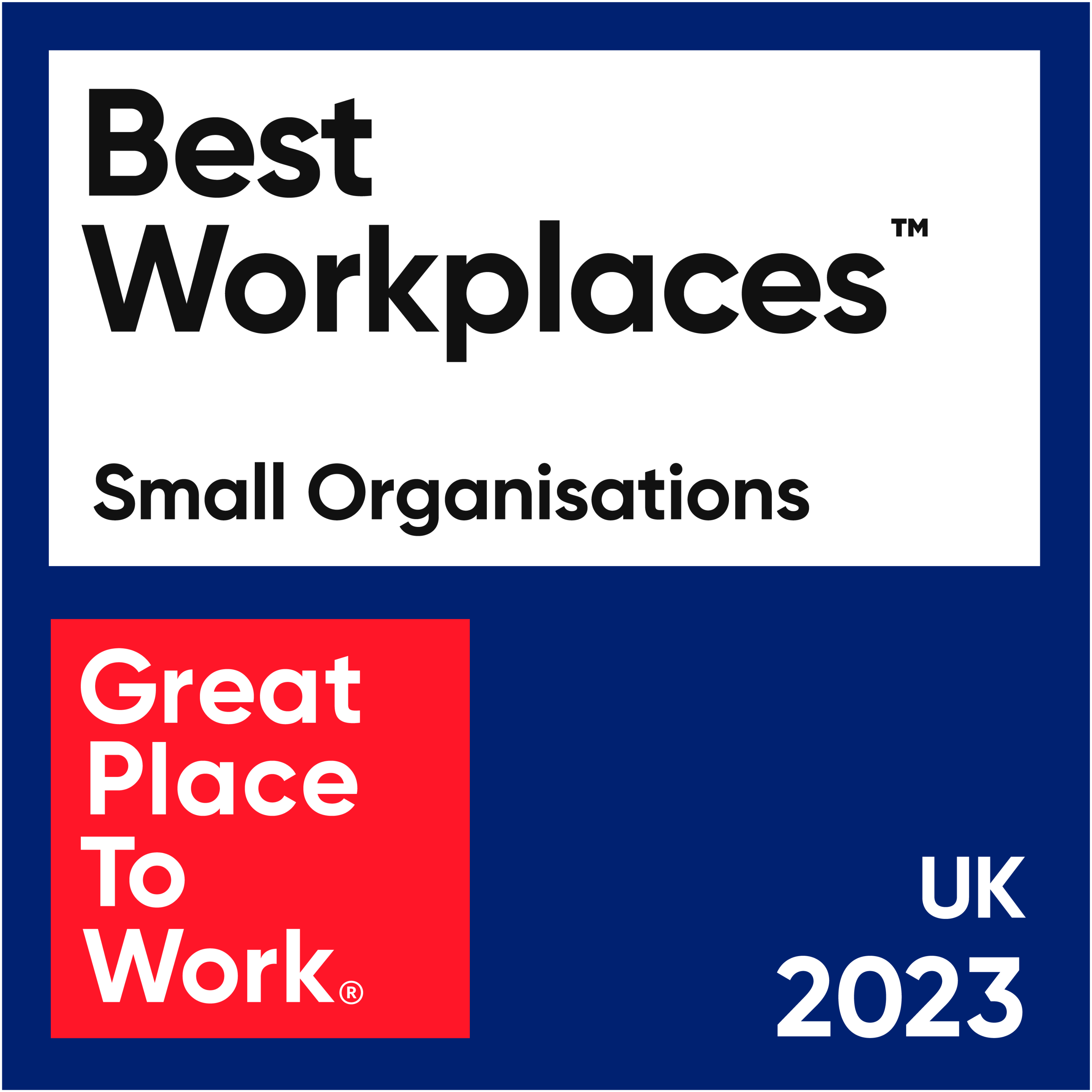Can AI transform recruitment?
Artificial Intelligence (AI) has revolutionised various industries, and hiring is proving to be no exception.
We know that without physical hiring managers, there would be no sourcing, screening, or selecting the best candidates for job positions. But, as AI becomes more commonplace, there's a growing debate about whether it can help or hinder recruiters.
With 65% of recruiters saying they’re already using AI in their processes, can AI and human collaboration lead to a successful recruitment process?
We’re exploring the pros and cons of AI in hiring.
AI pro: Speeds up processes
Probably the most challenging task during the recruitment process is screening candidates. Hiring managers can dedicate up to a third of their working week sourcing job seekers for a single role - evaluating applicants' qualifications, experience, and fit for the position.
One of the most helpful advantages of AI in recruitment is its ability to process vast amounts of data quickly.
AI can be used to handle administrative tasks like evaluating job applicants, identifying qualifications and expertise, responding to candidate enquiries outside regular business hours, analysing data, and arranging interviews.
This speed significantly reduces the time-to-hire and enables hiring managers to focus on other aspects of the hiring process.

AI con: Trust & rapport
Even with more speedy processes, building rapport and trust with candidates can be pretty difficult when these stages of the hiring process lack the human touch. And building trust and getting buy-in to a company is really important in the recruitment process.
AI will definitely struggle to establish meaningful connections, leading to a more impersonal candidate experience, lack of trust, and potentially loss of candidates from the process.
While AI-driven chatbots can handle initial candidate queries, hiring managers should take over during important stages of the process to build relationships and understand the candidate's motivations more clearly.
AI pro: Reduced bias
68% of recruiters believe that AI can remove unconscious bias from the hiring process. Almost half of hiring managers admit to having bias, and this means many applicants are missing out before they can even get a foot in the door.
AI algorithms are, in theory, designed to be unbiased and objective in their decision-making process, the aim being that they shouldn’t have inherent biases based on factors like gender, race, or age.
However, this generally isn’t the case yet. While AI has the potential to reduce hiring bias, at the moment it comes equipped with the same discriminations as the society which created it, and any errors or inherent biases will be reflected in the AI’s output.
AI con: Unforeseen biases
Although we aim for AI to be neutral, if historical hiring data contains bias, the AI system can perpetuate these biases, leading to unfair outcomes for candidates.
With 50% of people saying they believe their race, gender or ethnicity has hindered them securing a job, the importance of eliminating bias in the hiring process can’t be understated.
A report from Cambridge University exploring the if AI debiases recruitment states that as hiring managers or HR professionals, the onus is on you to be able to check with AI companies for biases.
We believe it is essential that professionals possess at the very least a basic understanding of the limitations of AI-powered hiring tools. Again, this requires lifting the veil of objectivity from hiring AI and critically scrutinising AI companies’ claims that their technologies will magically solve HR departments’ long-term struggles around both volume recruitment and their DEI agendas.
When it comes to eliminating bias and supporting DE&I, AI can’t deliver this alone. Companies need to create a DE&I culture beyond just adding AI to their hiring process. An example of eliminating bias from hiring could be something like removing discriminatory language from their job listings.

AI pro: Better candidate experience
Findings show that only 14% of recruiters are willing to offer feedback to candidates, leaving a noticeable gap that AI could potentially bridge.
AI could step in to address this issue by generating feedback for candidates after their applications have been reviewed.
Some of the best tools also include chatbots to efficiently handle candidates; an easy way to use AI for hiring by taking on tasks like answering FAQs, providing updates, and offering feedback. This constant communication ensures candidates feel valued and engaged, even if the hiring process takes some time.
AI con: Lack of humanity
Personal interactions, intuition and, ultimately, decision-making play a vital role in hiring.
The power of offering personalised feedback to candidates, that gut instinct that the vast majority of hiring managers have about candidates, shouldn’t be underestimated and can’t be replaced by AI.
In fact, Totaljobs states in a 2023 report that AI could limit the people applying for your roles and that “‘the lack of human factor’ is the reason [candidates] wouldn’t apply for a job where AI is used in recruitment,” and “4 in 5 jobseekers don’t want AI to make the final decision in hiring.”
The message is clear; AI should complement, not replace human judgement.
Tips for using AI in hiring
There are ways to effectively use AI in the hiring process - these are the key points to remember:
Know your objectives
Think about what you’re aiming to gain from using AI in your hiring. Do you want better candidates? A fairer process? Or maybe you want to speed up certain areas? Once you’ve defined your objectives, it can help you pick the right AI tools and track how well they're doing.
Be transparent
Decide what information you need from applicants, and make sure it's actually related to the job they’re applying for. Remember to tell candidates you're using AI in hiring, and get their okay to use and process their information.
Audit your AI regularly
It’s pretty important to make sure the AI you’re using is still ethical and not breaking any laws. If you're using tools from a third party, ask them how they do their audits. If it's your own tool, think about bringing in an outside auditor.
Will AI transform recruitment?
While AI has a lot of potential, it's not a one-stop solution for all hiring challenges. Human judgement and gut feeling still really matter in finding the right candidates, so those worrying that the robots are going to take their jobs can breathe a sigh of relief.
The future of recruitment isn't just about AI taking over – it's about AI and humans teaming up to make hiring more efficient, fairer, and better for everyone involved in the process.
By understanding the strengths and limitations, hiring managers and companies can use AI to complement their current practices, resulting in some pretty amazing new hires.


built by: huzzah!

